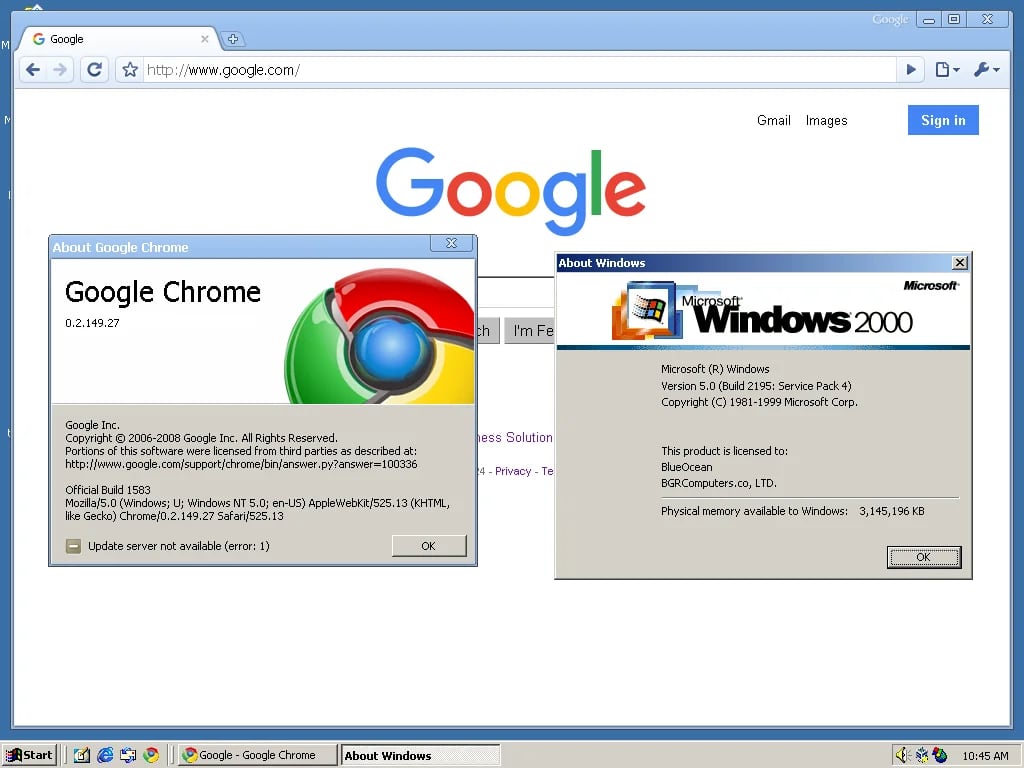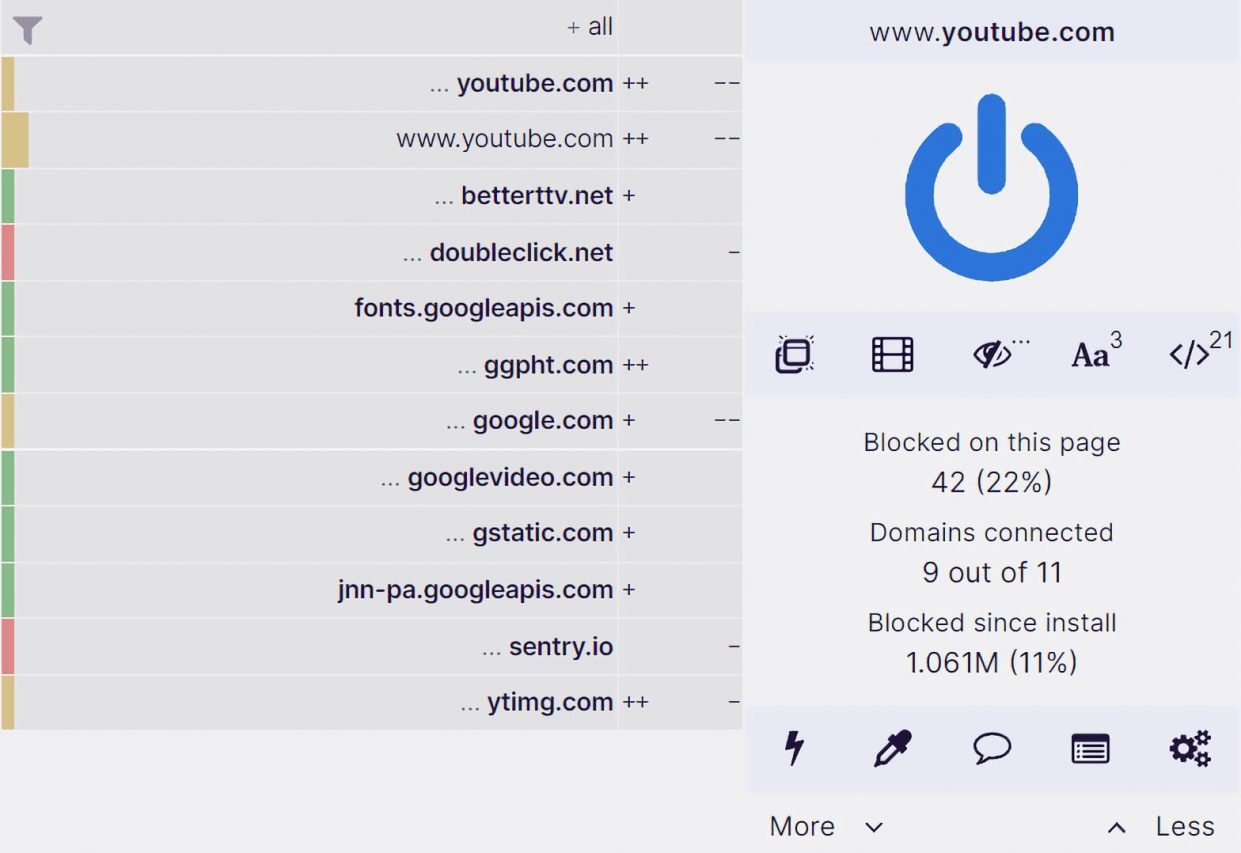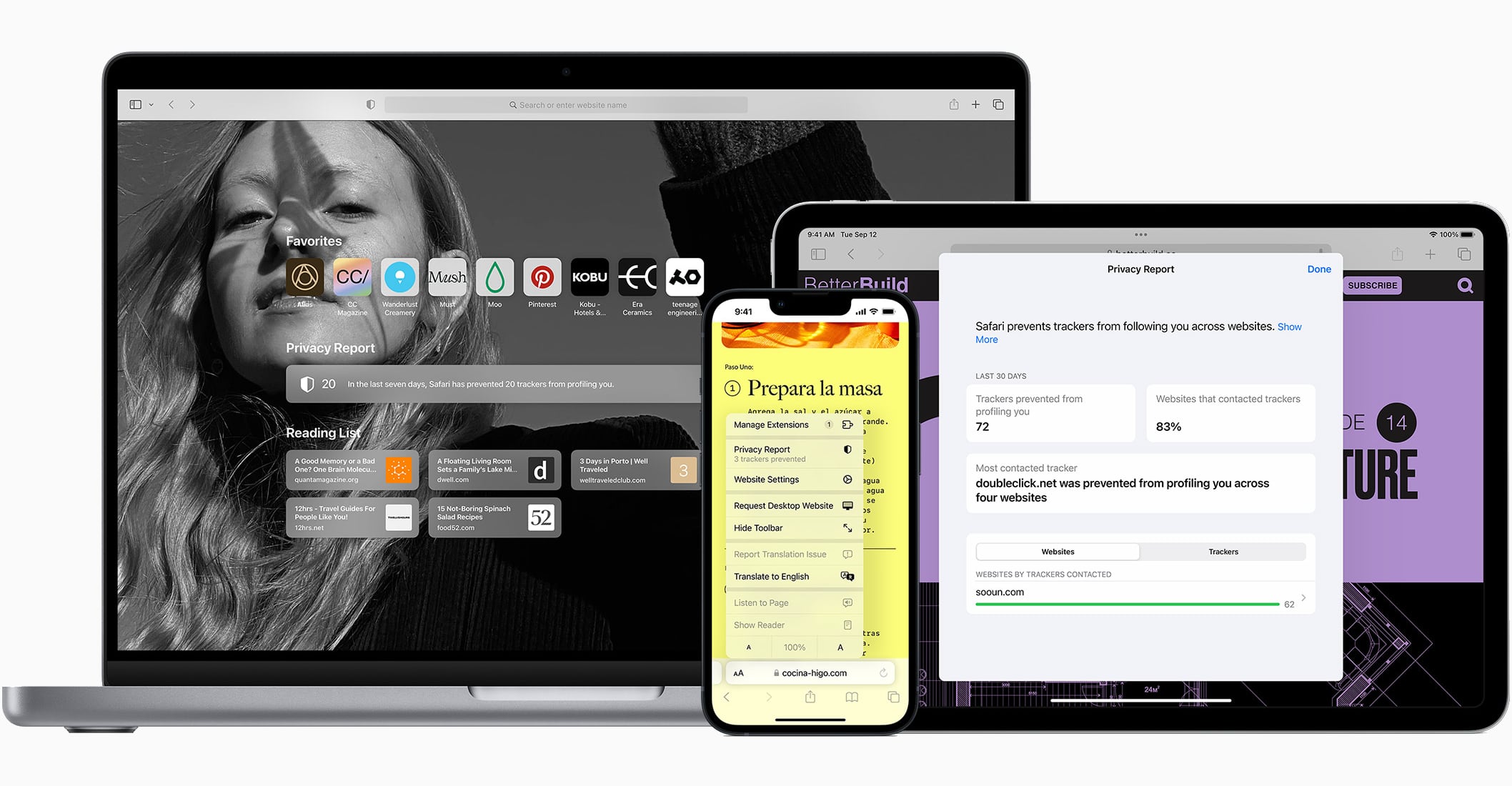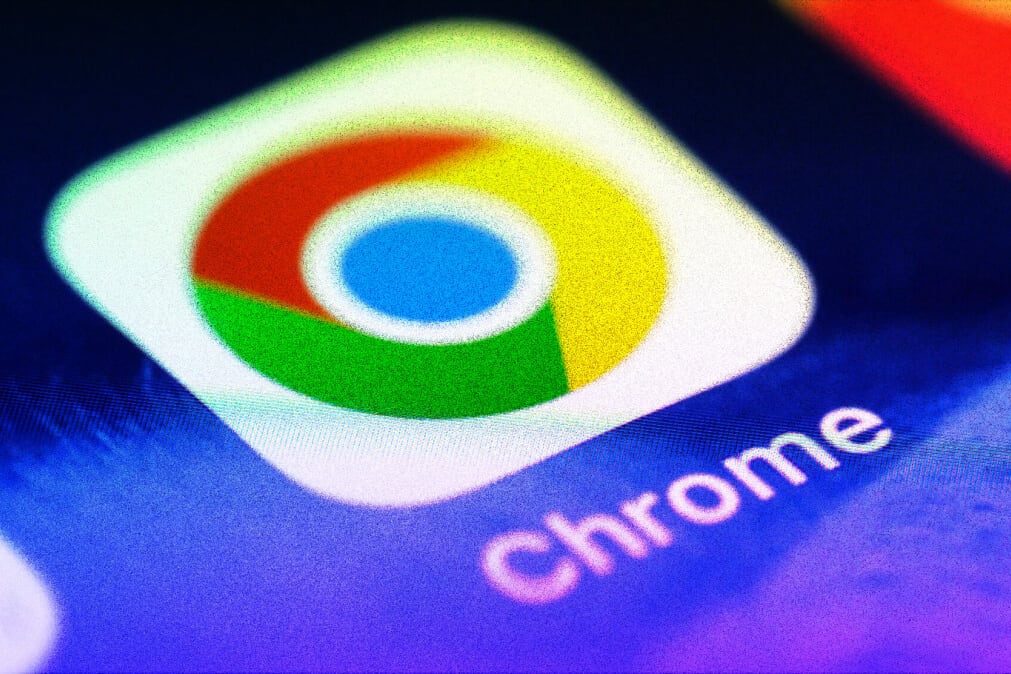Google Chrome is the most popular browser on the planet with a share of 65.7%. It is probably installed on your computer, and it is through it that you are now reading this article.
At first glance, this is an ordinary browser, which is where everything comes from. But in reality, everything is not so simple.
Google Chrome today is no better than Internet Explorer was in the 2000s, and Google itself is largely to blame for this. This is a big problem that has no easy solution.
Briefly:
Why Chrome became popular
What’s wrong with Google’s own engine
How does this all happen for ordinary users?
Don’t forget about data collection
Why did expansion work stop?
Chrome is slow under load
What alternatives are there in Chrome?
Will Chrome change in the future?
Why Chrome became popular

Beta of the first version of Chrome
Google Chrome was released in 2008. The timing of the release could not have been better. The entire Internet was already tired of Internet Explorer, which greatly hampered the development of the web, and Firefox was actively gaining popularity, but it was far from the Microsoft browser.
At the time, Chrome was like a breath of fresh air after its cluttered and slow competitors. It had a simple, clean design, address text and a search engine in one window (yes, it used two windows in different countries), and most importantly, most of its components were available everywhere in the form of Chromium, an open source browser.
How Google employees destroyed Internet Explorer
Chrome supports all modern web standards, including HTML5, which allow developers to create websites at a new level. Then Google strived and made the Internet free, and this bet was bought.
A few years later, Google Chrome became the leading player in the market, with its share growing at the expense of the Internet Explorer browser.
Google made a very good browser and constantly improved it, adding new and useful features. In 2013, Google released the free Blink engine, abandoning Apple’s WebKit, and from then on the first problems arose.
◦ Back to contents ◬
What’s wrong with Google’s own engine

Dynamics of browser popularity from 2009 to 2024
Google was already a great corporation in 2008 with Gmail, YouTube, Maps and many more services. The company initially promoted Chrome as the best browser for its products.
But Chrome originally ran on the WebKit engine. It is an open source engine developed by Apple in 2003 and is still used in Safari today.
The problem was that Google engineers are always to blame for additions to WebKit. It was a good engine, but alien.
When Google released Blink, she now has everything she needs to dominate the Internet. Its popular services worked in its browser and in its own traffic, that is, the way Google itself wanted.
Initially, these changes were invisible, but after a few years, some Google services stopped working in other browsers. At various times, problems with browser support were observed in Google Meet, Allo, YouTube TV, Google Earth, YouTube Studio, Hangouts, Inbox and AdWords.
Now there are no such problems, services work everywhere (except for those that survived until 2024), but in Chrome they still work a little better.

Current version of Chrome as of October 2024.
This is partly due to the fact that Google engineers themselves optimize the services for Chrome, because they use them in their own browser. But there is one more nuance.
Chrome developers very often introduce many new technologies that are adopted by the W3C consortium and then become new web standards. All standards are open, that is, they are Maybe should be supported by every browser. However, at the time of the release of their first support for Chrome, because Google developed browser and web standards.
In general, the topic of Google and W3C has been discussed in the West for a long time. Google is accused of essentially subordinating the work of the W3C. In particular, 106 Google suppliers helped W3C in its work, and by some measures they outperformed the rest of the companies, in most cases by one employee at W3C.
◦ Back to contents ◬
How does this all happen for ordinary users?
Everything Google does results in Chrome being the best choice for users. Partly because Google really makes a fast browser, but without additional developers they themselves optimize the experience for Chrome.
For example, service VK video works much better in Chrome than in Safari. At a minimum, because there are no delays during video broadcasting in Chrome, but they work constantly in Safari.
Naturally, the more often problems like these occur, the more likely they are to choose Chrome as their primary browser to avoid causing problems in the future.
Google, in turn, will continue to refine Chrome for its serious audience, which already works anyway, just like services work in other browsers. It turns out to be a vicious circle.
◦ Back to contents ◬
Don’t forget about data collection

Google’s core business is serving ads, and Chrome does the best job of collecting data. While Safari and Firefox compete with each other to see who can collect the least amount of data, Chrome continues to collect information.
In 2020, Google announced that it would stop supporting third-party cookies in Chrome. With their help, advertisers can track user behavior.
At that time, Safari and Firefox had already stopped doing this, and Google proposed ending support in 2022. Then this deadline was repeatedly postponed. The final withdrawal date was set for the end of 2024.
But in July 2024, Google announced that it was leaving support for the cookie component in Chrome. The decision drew criticism from privacy advocates and even from advertisers, who had spent time and resources preparing for Chrome’s changes.
◦ Back to contents ◬
Why did expansion work stop?

Chrome is largely open source, but the extension store is owned by Google. Form extensions are called WebExtensions, specific to the Firefox and Safari platforms, to extend the extension between browsers.
Each extension has a manifest.json file that contains information about the add-on, its capabilities, and the permissions it needs to work. Now the current brand is Manifesto V3, and before that there was Manifesto V2.
The V3 manifesto was announced back in 2019 and became a very negative meeting between extension developers and their users. First of all, Manifest V3 limits ad blockers like uBlock Origin. Manifest V3 prohibits extensions from directly changing site rules, which ad blockers do since Manifest V2. Now the extension only sends the request, and the blocking concerns Chrome itself.
In this case, there are pros and cons, but this has already led to the exclusion of uBlock Origin, perhaps the most popular ad blocker in the world. uBlock Origin Lite with support for Manifest V3 still blocks ads, and does it well in most cases. But the developer had to disable most of the features to limit size expansion. For example, manually remove the function of selecting elements to block, which sometimes helps a lot.


Old and new version of uBlock Origin
Additionally, all extensions are now unable to download code remotely. This is another major blow to ad blockers.
As it was before: the extension constantly loaded new rules in order to quickly block new types of advertising. Now all content filtering rules must be stored in code extensions, and they can only be updated together with extensions through the Chrome Web Store.
Google says it needs to improve privacy, security and enhance performance. Many believe that Manifesto V3 was created only to combat ad blockers.although this is, of course, not the case. There are many important and useful changes in the V3 Manifest that affect other extensions as well.
Other browsers, even those running Chromium, do not block Manifest V2, so all extensions still work for them. But eventually they will follow, like Chrome. Firefox will likely support Manifest V2 for a long time.
◦ Back to contents ◬
Chrome is slow under load
Google Chrome is known for being resource hungry. Around the mid-2010s, Chrome went from a lightweight browser to its current RAM eater.
Forgive me for such analogies, but I have used many different browsers on different computers and under different OSes, but only Chrome always slows down when there are a large number of open tabs (30+).
My main browsers are Safari, Firefox and Chrome. Among the trio, only Safari and Firefox drain the least amount of battery and RAM on my MacBook Air. This is despite the fact that Google regularly releases Chrome updates specifically designed to reduce resource consumption on the Mac.
The most interesting thing is that with other browsers based on Chromium, I have exactly the same story, although Opera and Yandex Browser work even slower. I admit, I haven’t opened Brave and Vivaldi for a long time, but Arc’s performance was just at the level of Chrome.
◦ Back to contents ◬
What alternatives are there in Chrome?

Firefox and Safari are great replacements for Chrome. Special advice on caring for Safari if you’ve listened to Apple’s ecosystem recommendations.
Brave and Vivaldi run on Chromium, but they themselves block ads, do not collect data, and do not use any extensions. If it is important to you that the browser works in the same direction as Google, then these options are worth changing. But you have to be careful with Brave because he has been involved in several privacy scandals.
For lovers of the unusual, I can recommend Arc. We had a review of this browser, which is not like any other browser at all. But it is he who attracts many people.
◦ Back to contents ◬
Will Chrome change in the future?
Hardly. At the moment, Chrome is the most popular browser in the world, and there are no prerequisites for this.
Where did the first Internet browsers come from? One of them was made by Steve Jobs
If in the future Chrome continues to occupy a lower position compared to other browsers, makes unpopular decisions, and developers adjust sites only for it, then we risk getting an Internet that, again, depends on one browser, as was the case with Internet Explorer for 20 years back.
◦ Back to contents ◬
Source: Iphones RU
I am a professional journalist and content creator with extensive experience writing for news websites. I currently work as an author at Gadget Onus, where I specialize in covering hot news topics. My written pieces have been published on some of the biggest media outlets around the world, including The Guardian and BBC News.












